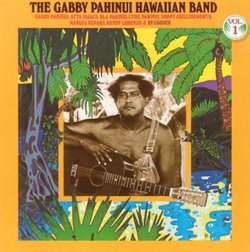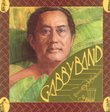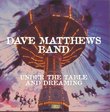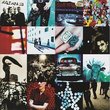| All Artists: Gabby Pahinui Title: The Gabby Pahinui Hawaiian Band Vol 1 Members Wishing: 1 Total Copies: 0 Label: PANINI RECORDS, INC. Original Release Date: 8/20/1975 Re-Release Date: 7/25/1991 Genres: Folk, International Music Styles: Pacific Islands, Hawaii Number of Discs: 1 SwapaCD Credits: 1 UPC: 739476100722 |
Search - Gabby Pahinui :: The Gabby Pahinui Hawaiian Band Vol 1
 | Gabby Pahinui The Gabby Pahinui Hawaiian Band Vol 1 Genres: Folk, International Music
|
Larger Image |
CD DetailsSimilar CDs
Similarly Requested CDs
|
CD ReviewsThis will melt your edge Pen Name | USA | 04/24/2001 (5 out of 5 stars) "Wonderful album. Lightens the load every time I listen to it. Great listening anytime but especially valuable during a dull, heavy, winter day. Many of the tunes are in Hawaiian but this won't stop you from singing along. 'Moonlight Lady' is a highlight. Beautiful ballad. The only downer is that the liner states that 20 songs were recorded but only 10 are on the album. This album is listed as Volume 1 but we can't find Volume 2 anywhere. If you like Grisman, Cline, Buena Vista Social Club you'll probably love this album." Gabby and friends go for kanikapila! J. Book | Pasco, WA United States | 11/07/2001 (4 out of 5 stars) "When this came out in the mid 70's, Hawaiian music was very diverse. You had the new breed of artists like Cecilio & Kapono, Kalapana, and Country Comfort incorporating pop, rock, and folk, managing to gain an audience outside of the islands. But for the traditionalists, it also meant a time of change. Gabby kept to his guns and did what he did best. This album got attention in the U.S. and UK because of Ry Cooder's involvement. Before he exposed the world to the Buena Vista All Stars, he was jamming with Gabby Pahinui and his friends and managed to get this album released by Warner Bros. The big hit on this is the sweet ballad "Moonlight Lady", sung by Pahinui's son Bla. Part of this album was recorded in California, specifically for the orchestra and string sections, and when Gabby heard his songs being backed by the orchestra, it was he who cried. Anyone who lived in Hawai'i in the mid 70's will always remember "Moonlight Lady", and it's the song that makes thousands of transplanted Hawaiians very homesick." This is not "Brown Gabby" Kenneth S. Fujii | Fresno, CA | 10/24/2005 (5 out of 5 stars) "This is not "Brown Gabby" (the 1972 sepia - brown tone album jacket entitled, "Gabby" -- which helped to reassert both his popularity and traditional Hawaiian music -- featuring Gabby's favorite song, "Hi'ilawe,"). But "The Gabby Pahinui Hawaiian Band, Vol. 1" ("Volume 1") is my favorite Hawaiian recording - largely because of the track, "Moonlight Lady" (you traditionalists can "barf," to quote Michelle Wie). This is akin to public admission of liking hapa haole music -- which I do, without embarrassment.
Guitar players from Japan and Mexico always carried home Volume 1 after Island visits; and together with renewed slack key interest, this album (released in 1975) influenced emerging Hawaiian guitar and ukulele pickers. Ry Cooder's presence was inspiring for this Big Island recording session; but the all-star group of Gabby and his sons, Bla and Cyril, together with Randy Lorenzo, "Joe Gang" Kapahu, Atta Isaacs, and Sonny Chillingworth were already bigger than life musicians. And when this unique assemblage also has camaraderie and mutual admiration, the result is a guitar classic respected throughout the world. Pickers, pluckers, strummers, and sliders will particularly enjoy the guys jammin' on "Moani Ke `Ala," (track 4); and Gabby fans can cut loose warm, happy tears (again) listening to "Ipo Lei Manu," (track 11) - as he smiles down from heaven, still shaking his head at "Hawaiian Love," (track 8) with its accordion backup (but I like it, Pops). Gabby's folk hero stature sparked a resurgence of Hawaiian (language) music (before and) after the US Bicentennial celebration of 1976, encouraging local, native-ethnic culture - and Hawaii's songwriters and musicians (including Eddie Kamae and "Sons of Hawai'i," past and present) to search old and new directions. I sometimes question, however, if non-kama'ainas (non-locals) can sing along easily in Hawaiian with Gabby or Auntie Genoa (figuratively) - as PBS audiences do with Andre Rieu, Daniel O'Donnell, and POP stars of the 60s and 70s, in the local tongue. As a Hawaiian at heart, I continue returning to Waikiki to enjoy today's Alfred Apakas and "Hawaii Calls" at the Royal Hawaiian, in the luaus of my mind. Considering lyrics to be musical tools to communicate thoughts and emotions, I wonder openly - with love and respect - if "Hi'ilawe" would be just as popular as "Moonlight Lady," sung in English. " |

 Track Listings (11) - Disc #1
Track Listings (11) - Disc #1




